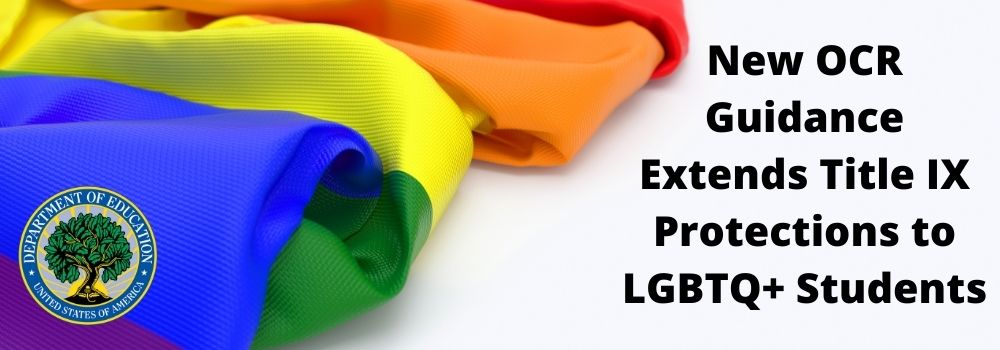June 2021 —
The MLO Minute: By Nancy Potter, Esq. —
The U.S. Department of Education’s Office for Civil Rights recently issued a Notice of Interpretation explaining that it will enforce Title IX’s prohibition on discrimination on the basis of sex to include: (1) discrimination based on sexual orientation; and (2) discrimination based on gender identity. Title IX of the Education Amendments of 1972 prohibits discrimination on the basis of sex in any education program or activity offered by a recipient of federal financial assistance.
OCR’s interpretation stems from the U.S. Supreme Court decision in Bostock v. Clayton County, issued one year ago this week, in which the Supreme Court established that it is impossible to discriminate against a person based on their sexual orientation or gender identity without discriminating against that person based on sex. The case involved gay and transgender employees who had been fired because of their sexual orientation or gender identity. The Court held that this negative treatment of employees because of their sexual orientation or gender identity is discrimination based on sex and is unlawful under Title VII, the federal law that prohibits sex discrimination by employers.
The Supreme Court has not ruled on how Title IX applies to LGBTQ+ students, but many federal appellate courts have done so. The Third Circuit, which has jurisdiction over Pennsylvania and Delaware, in Doe v. Boyertown Area School District, 897 F.3d 518 (3d Cir. 2018), held that the Boyertown Area School District’s practice of allowing transgender students to use restrooms and locker rooms consistent with their gender identity did NOT violate Title IX. This past March, DOJ issued a memorandum concluding that Title IX does prohibit discrimination based on gender identity and sexual orientation. This OCR guidance means that OCR will be processing complaints and conducting investigations into discrimination on the basis of gender identity and sexual orientation.
At MLO, we frequently hear from LGBTQ+ students that they often face additional challenges in schools, including disproportionately experiencing persistent bullying, harassment, and victimization. We represent students in a wide-range of Title IX matters, at both the K-12 and post-secondary level. Do not hesitate to contact us if we can be of assistance!




